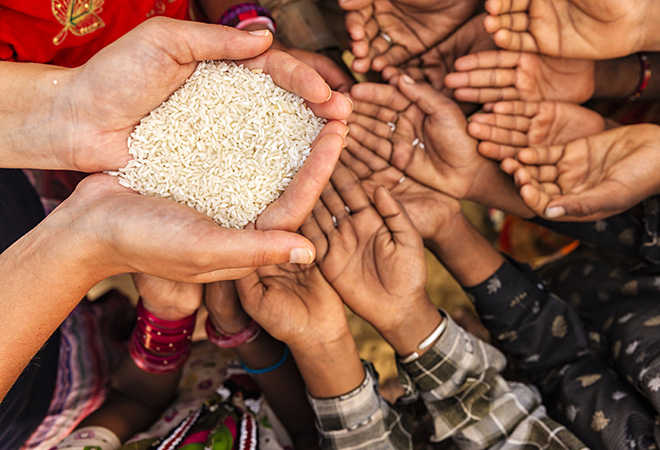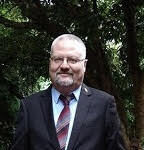As communities feel the effects of a warming world, the importance of propagating and protecting mangroves stand out in the efforts to mitigate carbon emissions buildup. While already being able to sequester three to five times more carbon than forest trees, mangroves also do a lot more, serving as a habitat for various species in coastal ecosystems — hence, sustaining the livelihoods of fisherfolk — and as a protector of vulnerable communities against erosion and storm surges.

Volunteers from public, private and civil society organizations work together at TMI, not just in planting mangroves, but also in fostering strong partnerships and creating a platform for knowledge exchange and shared responsibility in mangrove conservation.
In celebration of the International Day for Conservation of Mangroves, Aboitiz Power Corporation (AboitizPower) recognizes the tremendous importance of mangroves, as well as the exemplary efforts of its business units and stakeholders in helping conserve and restore mangrove forests in their communities.
It takes a village to raise a mangrove ecosystem
In Maco, Davao de Oro, AboitizPower subsidiary Therma Marine, Inc. (TMI) celebrated Philippine Environmental Month last June with another one of its quarterly collaborations with the public sector and civil society organizations in cleaning the coast and planting mangroves within its vicinity.
“The first mangrove tree planting and clean-up drive took place in 2019, and since then, it has become a recurring event for TMI,” shared TMI Safety, Health and Environment Supervisor Chrisyl Garcia. “By organizing these activities on a regular basis, TMI is able to contribute to the restoration of mangrove habitats and the overall well-being of coastal ecosystems.”

Volunteers from JCI Davaoeña Daba-Daba — a leadership organization of young Davaoeña achievers and active citizens — are immersed in mangrove planting at the Aboitiz Cleanergy Park.
“By conducting these events, TMI aims to raise awareness about the importance of mangroves and engage community members, volunteers, and employees in hands-on conservation efforts. The initiative has likely fostered a sense of environmental responsibility among participants,” she added.
On that single June day, a total of 110 kilograms of residual waste were collected, while 550 mangrove seedlings were planted.
Over the years, TMI's mangrove planting and clean-up drive has consistently gained momentum, with increased participation from volunteers from the Diocese of Maco, the Bureau of Fire Protection, the Philippine National Police (PNP), the 1001st Brigade, the Municipal Environment and Natural Resources Office (MENRO), the Community Environment and Natural Resources Office (CENRO), and local private company Gas Island Petroleum Corp.
“These stakeholders have played a crucial role in leading discussions on how to effectively plant the mangroves. Their expertise and experience have been invaluable in guiding the participants on the proper techniques and methods of planting mangrove saplings. They share their knowledge about the ideal planting locations, appropriate species selection, and necessary care and maintenance practices for the newly planted mangroves,” Garcia said.
This collaboration has enhanced the success and impact of TMI's mangrove planting and clean-up drives, ensuring that the activities are conducted in a well-informed and efficient manner.
“Overall, the consistent involvement of volunteers and leaders in discussing mangrove planting techniques underscores the collective effort and shared commitment towards the preservation and restoration of mangrove ecosystems,” Garcia reflected.
Adopt-a-mangrove
Meanwhile, in Mariveles, Bataan, GNPower Mariveles Energy Center Ltd. Co. (GMEC) officially kick-started its own efforts in mangrove conservation by signing a memorandum of agreement (MOA) with development partners for an estimated P7-million “5 Hectares Orani Mangrove Adoption and Protection Project” that is expected to start implementation in September.
Under the MOA, GMEC partnered with the Provincial Government of Bataan, the Municipality of Orani, the Department of Environment and Natural Resources, and the Tubo-tubo Fisherfolks Association to improve the existing conditions of the mangrove areas in the allotted five hectares for a period of five years, which is subject for possible renewal.

Representatives from GMEC, the Provincial Government of Bataan, the Municipality of Orani, the Department of Environment and Natural Resources, and the Tubo-tubo Fisherfolks Association sign an MOA on mangrove adoption and protection.
“Through this initiative, we envision to improve the existing conditions of the mangrove areas in the Province of Bataan, starting in the Municipality of Orani,” said GMEC Associate Vice President for Community Relations Arcel Madrid. “Adopting a mangrove site is vital for coal-fired power plant companies like GMEC because mangrove forests play a significant role in mitigating climate change through carbon sequestration.”
“With these efforts, GMEC will also help uplift the lives of our community partner, the Tubo-tubo Fisherfolks Association, by providing a sustainable fishing ground and viable alternative livelihood to improve their socio-economic status,” he added.
In the longer run, GMEC looks forward to more mangrove site adoption projects and other corporate social responsibility endeavors that are aligned with local and national development goals.
A coastal stronghold
At the coastal area of Punta Dumalag, Davao, the Aboitiz Cleanergy Park stands as a sanctuary, not just of pawikans (turtles) and rare bird species, but also of mangrove biodiversity.
“It’s unbelievable how [the] Aboitiz [Foundation] has developed Punta Dumalag Cleanergy Park to what it is today,” said frequent visitor Cyra Quilaneta of Junior Chamber International (JCI) Davaoeña Daba-Daba. “The highlight for us [in visiting the park] is the education and experience it provides our members and their guests, especially the youth. We get to appreciate the importance of mangroves by seeing its functions personally — trapping [coastal] trashes and [supporting] turtle hatcheries.”
The team at AboitizPower distribution unit Davao Light and Power Co., Inc. (Davao Light) spearhead the activities at the Cleanergy Park, which include educating students and guests by hosting tours, as well as assisting them with mangrove planting.
“JCI Davaoeña Daba-Daba, together with JCI Davao, is an organization that supports the United Nations Sustainable Development Goals, particularly #14: Life Below Water… By protecting and restoring mangroves, we contribute to overall sustainable development,” Cyra said.
To date, 18,138 mangroves have been planted at the Cleanergy Park. However, several natural and man-made factors have rendered its survival rate at only 30 percent.
“While [the] Aboitiz Foundation and its partners have made commendable strides in mangrove protection, the task is far from complete. Mangrove protection requires collective effort to be effective. Mangroves face numerous threats, including habitat loss, climate change impacts, pollution, and unsustainable resource extraction,” Cyra explained. “To ensure the long-term viability of mangrove ecosystems, ongoing efforts are necessary. Continuous awareness, education and action of more groups and organizations is crucial.”
“Sustainability remains at the core of AboitizPower and our business units have concretized this through their efforts in caring for mangrove ecosystems and the wider environment,” said AboitizPower president and CEO Manny Rubio. “I commend our team members for helping harness the collective efforts of the company, various partners, and host communities in bringing us closer to our aspiration of a better and cleaner tomorrow.”










